New Delhi: A shroud of dust settles over forgotten files and white paint curls from the walls of a small room inside the Maulana Azad Education Foundation on Delhi’s Chelmsford Road. Once a beacon for minority education, it is teetering on the edge of oblivion. The minority affairs ministry and the Central Waqf Council want to pull the plug on it, and a judicial reprieve seems unlikely. But after nearly two decades of service, the foundation and its staff of over 40 people are refusing to go quietly into the night.
Just metres from the bustling New Delhi railway station, the Maulana Azad Education Foundation (MAEF) building is quiet and forlorn. The employees seem unmoored. Their days are filled with walks in the garden, sips of tea, and conversations about their uncertain future.
Sitting in his cramped office, a 50-year-old senior official, his spectacles perched on his nose, discusses the latest news in a hushed tone: the Delhi High Court has reserved its verdict on the closure of MAEF. Whether the court agrees with the central government’s assessment of the institution as “obsolete” remains to be seen. The official, a 25-year veteran of MAEF, reclines into the chair talking about the good old days. But when the future comes up, his face falls.
“This foundation is dead now,” he said wearily, speaking on condition of anonymity. “And it has been done in a planned way.”
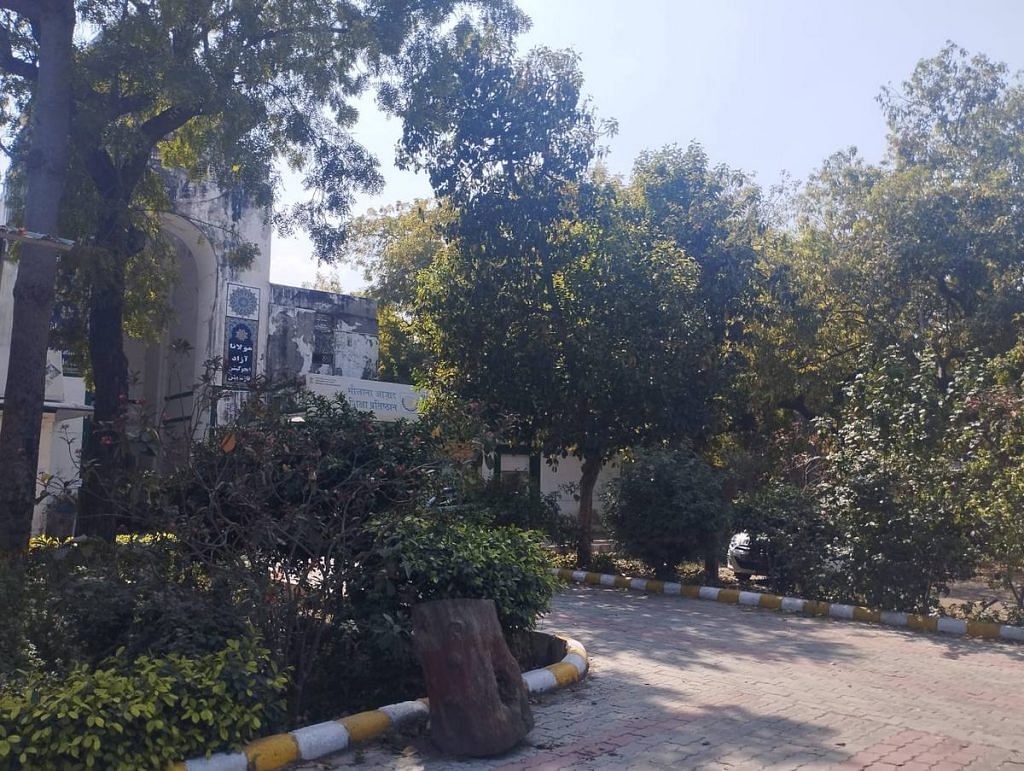
On 7 February, the Ministry of Minority Affairs, acting on a proposal by the Central Waqf Council (CWC), ordered the closure of the Maulana Azad Education Foundation, established in 1989 to promote education among minorities and disadvantaged sections through scholarships and grants. The order did not outline any reasons, but allegations of redundancy and irregularities in schemes surfaced later.
“Madam (Minority Affairs Minister Smriti Irani) says that the same scholarship is being given by both the ministry and the foundation. So, why is this repetition happening? That’s why it was closed,” said S Munawari Begum, chairperson of the Education and Women’s Welfare Committee of the CWC and member of MAEF.
Begum further accused MAEF of mismanaging the Grant-in-Aid Scheme, which allocated funds for school construction. According to her, the ministry’s grant money for this scheme wasn’t used properly, and requests for utilisation certificates—showing how funds were spent—were ignored. Begum also said that no new grants or scholarships had been awarded in the past year.
At first, the government started discontinuing new schemes as well as those that did not have much impact in the community… Work has been stalled here for the past year.
-MAEF official
The foundation vehemently denies these accusations. The senior official argues that MAEF and its schemes were much more popular within the community compared to those offered by the ministry. He also highlights that MAEF had established a strong presence through its Grant-in-Aid Scheme well before the ministry’s involvement, providing essential infrastructure, facilities, and scholarships to schools.
The official recalls a situation in 1996 where the foundation set a target of establishing 10-15 residential schools. When they ended up receiving over 100 applications, MAEF decided to modify the application criteria and provide funding to all.
“Our foundation is dedicated to promoting education, and we have worked as a helping hand for organisations,” the official said.
On the allegation of redundancy, he asserts that MAEF offered scholarships distinct from those provided by the ministry, such as the Begum Hazrat Mahal Scholarship for girls.
But he does acknowledge some shortcomings. “There are no irregularities in the Grant-in-Aid scheme,” he said, “but irregularities in the Hunar Haat programme (for artisans) have been highlighted in the ministry’s internal report.”
Outside his office, the crumbling corridors feature several large posters depicting historical images of Maulana Azad, India’s first education minister, accompanied by text about his impact. Though the pictures are now faded, almost blending in with the walls, they still invigorate the officials and remind them of their purpose.
But over the last few years, the foundation’s activities have declined sharply. Where they once worked on grants, examined the papers of beneficiaries, and actively coordinated with the ministry, a day’s work now primarily entails answering emails.
Over the past five years, MAEF’s disbursements to NGOs under the Grant-in-Aid scheme have plummeted from Rs 10.33 crore in 2018-19 to under a crore in each of the ensuing years until 2023.
Also Read: Shaheen Bagh roared against CAA 4 yrs ago. Now there’s an uneasy quiet, ‘no intentions to protest’
A sharp descent
When the Maulana Azad Education Foundation started work in the early 90s, a few years after it was founded, it was armed with little more than a vision and a modest corpus of Rs 5 crore from the government. But its mission was always ambitious— to uplift minorities through education and economic support.
In 2006, the foundation came under the purview of the newly formed Ministry of Minority Affairs, although it remained autonomous. From this point on, the government began extensively promoting the foundation’s scholarships, along with its other schemes.
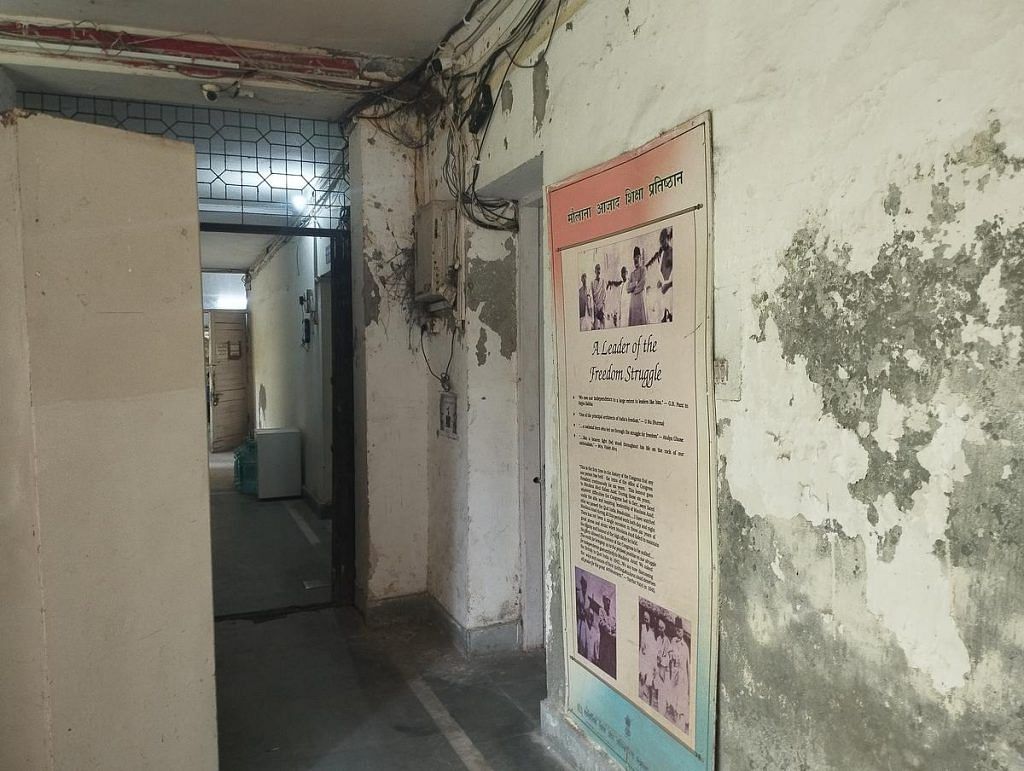
One such program, the Begum Hazrat Mahal National Scholarship, proved particularly successful. Originally launched under Prime Minister Atal Bihari Vajpayee as the ‘Maulana Azad National Scholarship for Minority Girls’ in 2003, it specifically aided Muslim girls’ education. A senior official remembers with pride how the scholarship motivated girls to excel, pushing them to achieve the qualifying score of 56 per cent. This scholarship provided Rs 10,000 per year for students in classes 9-10, and Rs 12,000 for classes 11-12. Later, in 2016, it was renamed the Begum Hazrat Mahal National Scholarship by then minority affairs minister Mukhtar Abbas Naqvi.
But by 2014, the beginning of the end had already started, according to the official. He alleged a noticeable decline in the foundation’s activity since that year, with a particularly significant drop after Smriti Irani took over as minority affairs minister in 2022. He claimed that “no meetings” have been held since her appointment, and that project allocations and scheme operations have ceased.
ThePrint has emailed additional secretary Khilli Ram Meena and deputy secretary Jagdish Kumar of the Ministry of Minority Affairs for their comments. This report will be updated if a response is received.
“At first, the government started discontinuing new schemes as well as those that did not have much impact in the community,” the official said. “Work has been stalled here for the past year.”
Shortly after the order to shut down MAEF, three petitioners—a Hindu, a Muslim, and a Sikh—challenged the decision in the Delhi High Court. They argued that the closure would not only impact vulnerable “educationally backward minorities” but also constituted an “arbitrary” misuse of power.
In 2023, the government discontinued the Begum Hazrat Mahal Scholarship. Similarly, the Gharib Nawaz Employment Scheme for Minorities, launched in 2017-18 to provide skill-based employment training, was shut down in 2021.
Over the past five years, MAEF’s disbursements to NGOs under the Grant-in-Aid scheme have plummeted from Rs 10.33 crore in 2018-19 to under a crore in each of the ensuing years until 2023.
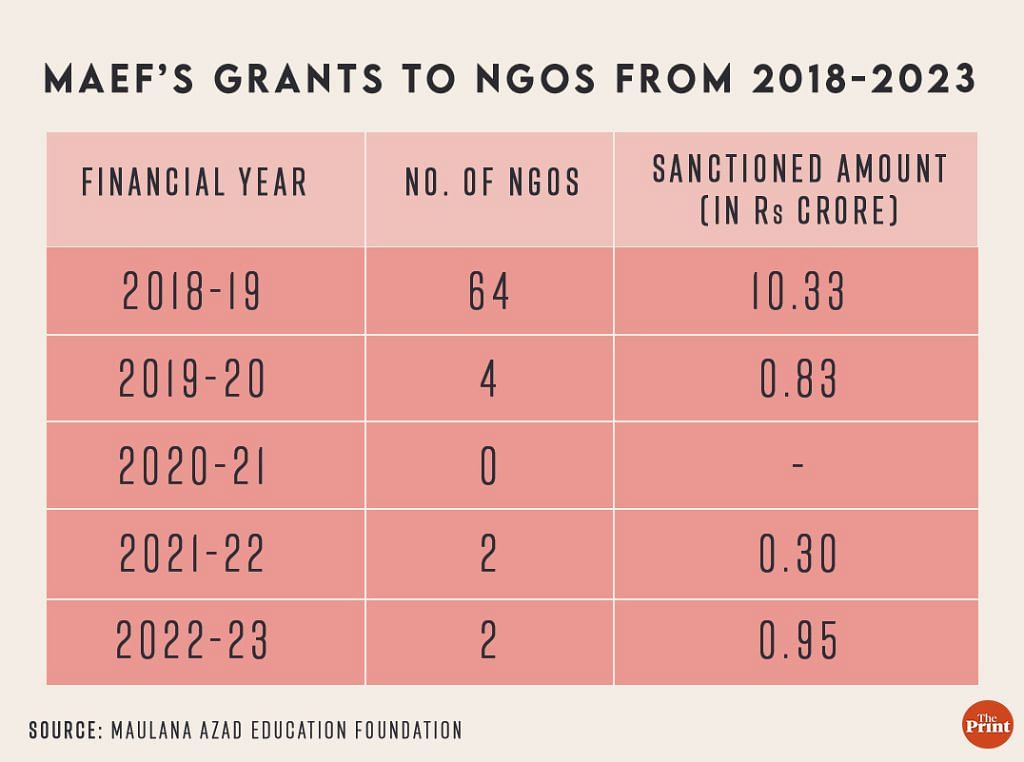
“The government has also halted granting new projects under the Grant-in-Aid Scheme and has also stopped those projects that were previously approved,” the official said. He said he was most concerned about schools or NGOs that started work on their educational institutions with the grant and are now worried about their unfinished work due to the sudden halt of projects.
The foundation’s budget has fluctuated over the years, but hasn’t exceeded Rs 100 crore since 2017-18. As of November 2023, it held Rs 1,073.26 crore, with Rs 403.55 crore in pending liabilities, leaving Rs 669.71 crore available.
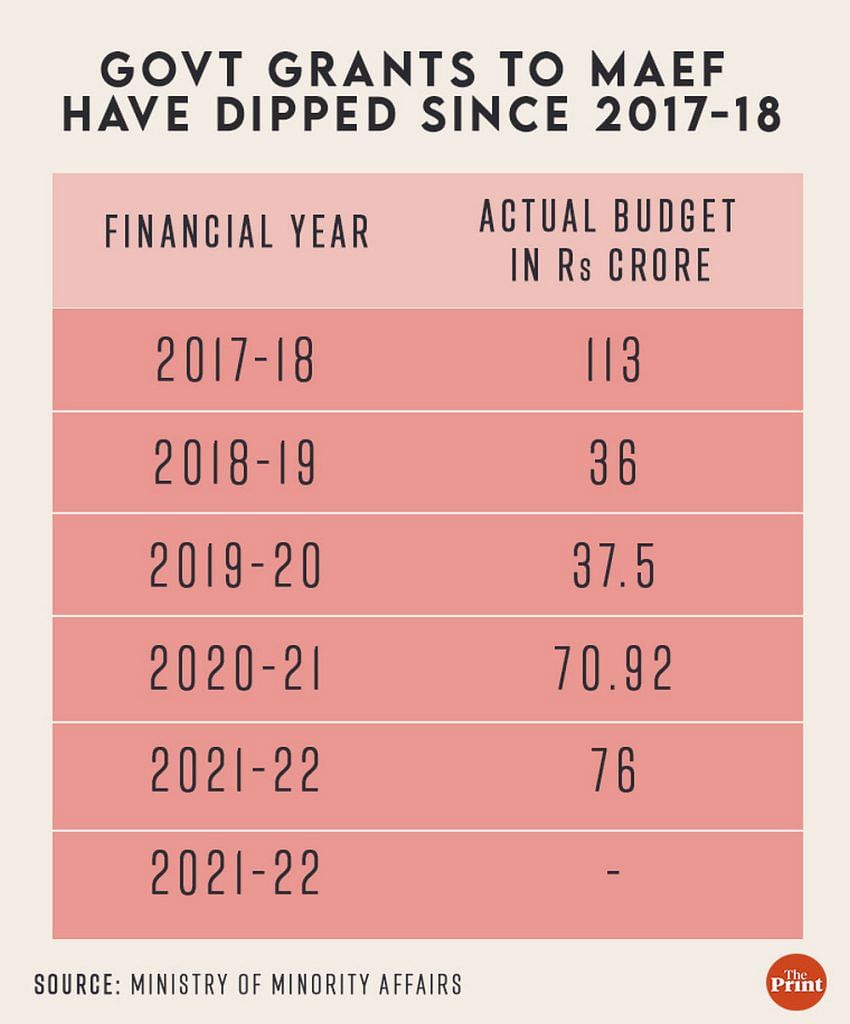
On 7 February, dark clouds gathered over the foundation. Its general body, including former Jamia Millia Islamia vice-chancellor Najma Akhtar and Prof. former Aligarh Muslim University VC Mohammad Gulrez convened to discuss shutting down the organisation.
This meeting came on the heels of a 21 January proposal sent by the CWC to the ministry advocating for the MAEF’s closure. The ensuing order recommends transferring MAEF’s funds to the Consolidated Funds of India (CFI) and its liabilities to the National Minorities Development and Finance Corporation (NMDFC) to address pending claims and liabilities.
While the senior official claimed that no actions have been taken yet, the writing is on the peeling walls.
‘CWC cannot propose its closure’
Shortly after the order to shut down MAEF, three petitioners—a Hindu, a Muslim, and a Sikh—challenged the decision in the Delhi High Court. They argued that the closure would not only impact vulnerable “educationally backward minorities” but also constituted an “arbitrary” misuse of power.
These petitioners, human rights activist Daya Singh, former Planning Commission member Syeda Saiyidain Hameed, and author John Dayal, specifically questioned the Central Waqf Council’s authority to propose MAEF’s dissolution.
“The CWC is administered by (minority affairs) ministry officials. There is no mention of why they are proposing it. They don’t have the position to propose it,” said advocate-on-record for the Supreme Court, Fuzail Ayyubi, who filed the petition.
Ayyubi considers the ministry’s decision to be a “terrible exercise of power” with “no valid justification”, and argues that the “funding restrictions: placed on the foundation are unjust.
Further, since MAEF is registered under the Societies Registration Act 1860, it has the right to make its own decisions, and shutting it down requires a specific number of members present and a fair, objective process, Ayyubi said. Furthermore, any remaining funds must be used for similar educational causes. According to him, shutting MAEF would be a blatant violation of the Societies Registration Act, which mandates dissolution only with the consent of three-fifths of members at a convened meeting and government approval.
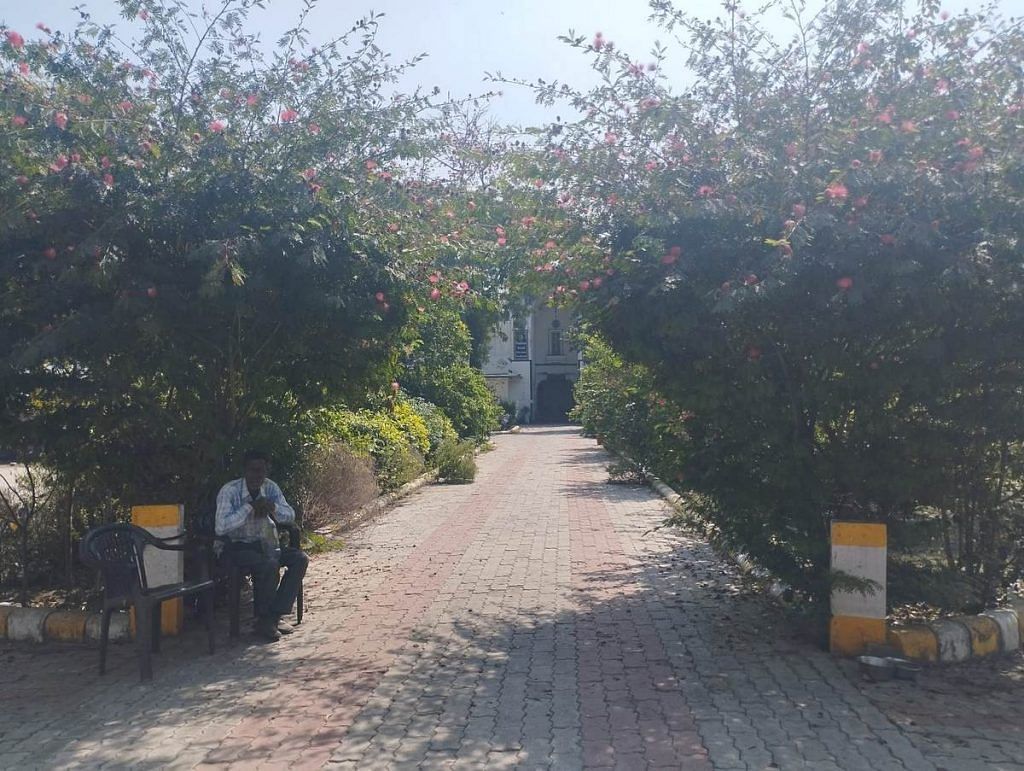
On 12 March, representing the central government, additional solicitor general Chetan Sharma justified the foundation’s closure before a division bench led by Acting Chief Justice Manmohan and Justice Mini Pushkarna. He argued that the Minority Affairs Ministry now has adequate staff to handle initiatives for the minority community, rendering MAEF’s continued operation obsolete. To bolster his argument, Sharma added that 523 out of 1,600 projects initiated by the foundation remain incomplete.
“Whatever foundation did, could not do, should have done, ought to have done, is now subsumed in the ministry. In any case, [MAEF] was 100 per cent government funding,” Sharma said. Subsequently, on 13 March, the Delhi High Court reserved its verdict on the petition.
Also Read: Khalid Saifullah is hero of hot-button apps. He’s using tech to ‘save’ India’s Muslims
Loose ends
A thick iron chain now hangs on the green main gate of the foundation, secured with a lock from the inside. A 50-year-old guard, in a neatly pressed navy blue uniform, said he still hasn’t come to terms with its closure. He’s worked here for four years, supporting his family of five, and had hoped to retire from this position. “Who will hire someone in their 50s?” he asked.
The guard is not the only person worried about unemployment. The senior official said that of MAEF’s 47 employees, 43 are contract workers. In the event of closure, they will receive one month’s notice before termination, while the remaining four may be relocated to another ministry or department by the government.
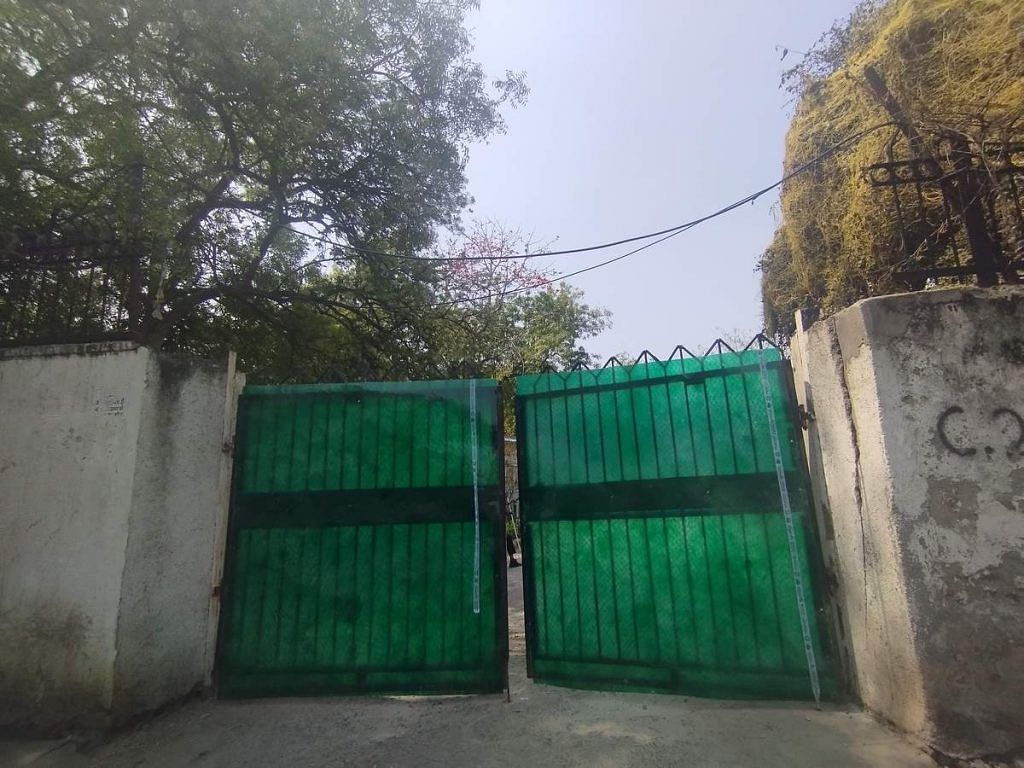
He added shutting down the foundation completely will take about a year because it is crucial to settle projects that have already been sanctioned. An inspection team will visit organisations that benefited from its schemes to finalise project settlements.
For this seasoned official, the foundation has embodied “ideals” and “ethics” for the past 25 years. He remembers the late Professor Mushirul Hasan’s words: this organisation shouldn’t become a mere government office, but a means of serving the nation.
(Edited by Asavari Singh)






